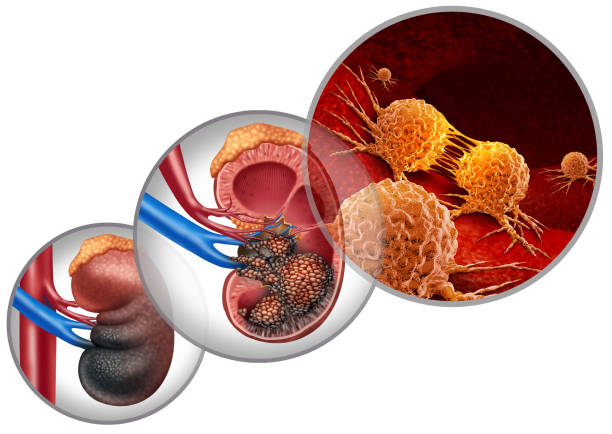Memory is one of the most fascinating and essential functions of the human brain. It is the invisible thread that weaves together the story of our lives—our experiences, knowledge, skills, and even our sense of identity. Yet, memory is fragile. We forget names, misplace keys, struggle with recalling facts during exams, or draw blanks during important presentations. For some, these lapses are occasional inconveniences; for others, they can feel like an overwhelming barrier.
The good news is that science shows us memory is not fixed. Our brains are remarkably adaptable, capable of strengthening, rewiring, and forming new connections throughout life—a phenomenon known as neuroplasticity. With the right habits, strategies, and lifestyle choices, we can enhance memory, sharpen focus, and even protect our brains against age-related decline.
In this article, we will explore 10 science-backed ways to boost your memory. Each method is supported by research and can be woven into everyday life. These aren’t quick fixes or empty promises; they are practical, powerful tools grounded in neuroscience, psychology, and medicine.
1. Get Quality Sleep: Your Brain’s Memory Consolidator
Sleep is not just rest for the body—it’s a vital process for the brain. During deep sleep, the brain actively consolidates memories, transferring information from short-term storage in the hippocampus to long-term storage in the cortex. Without sufficient sleep, your brain struggles to encode new information and retrieve old ones.
Studies show that both sleep duration and sleep quality affect memory. For example, research in Nature Neuroscience revealed that participants who slept less than six hours performed significantly worse on memory tests than those who got adequate rest. Even short naps have been found to improve memory recall.
To maximize the memory-boosting power of sleep:
- Aim for 7–9 hours of quality sleep per night.
- Stick to a consistent sleep schedule.
- Avoid screens and bright light before bedtime.
- Create a quiet, dark, cool sleeping environment.
Think of sleep as your brain’s “save button.” Without pressing it, much of what you learn may never fully stick.
2. Exercise Regularly: Movement That Sharpens the Mind
Your muscles aren’t the only part of your body that benefit from exercise—your brain does too. Physical activity increases blood flow to the brain, delivers oxygen and nutrients, and promotes the release of neurotrophic factors, proteins that encourage the growth of new brain cells and connections.
One landmark study published in the Proceedings of the National Academy of Sciences found that aerobic exercise, such as walking or jogging, increases the size of the hippocampus, the brain’s memory hub. Other research shows that even short bursts of physical activity—like a brisk 10-minute walk—can improve focus and memory recall.
For optimal memory benefits:
- Engage in aerobic exercises (walking, cycling, swimming) 3–5 times a week.
- Add strength training and yoga for overall brain health.
- Include movement in your daily routine—take stairs, stretch, or walk while talking on the phone.
Exercise doesn’t just keep your body fit—it primes your brain for learning, remembering, and creating.
3. Eat a Brain-Healthy Diet: Nourishment for Neurons
The food you eat directly impacts the health and performance of your brain. Certain nutrients can improve memory and protect against cognitive decline, while processed foods, sugar, and unhealthy fats can impair brain function.
The Mediterranean diet, rich in fruits, vegetables, whole grains, fish, olive oil, and nuts, is strongly linked to better memory and lower risk of dementia. Omega-3 fatty acids (found in salmon, walnuts, flaxseeds) are especially important, as they are building blocks of brain cell membranes. Antioxidants in berries and leafy greens help fight oxidative stress, which damages brain cells.
Memory-boosting foods include:
- Fatty fish (salmon, sardines, trout)
- Berries (blueberries, blackberries, strawberries)
- Nuts and seeds (walnuts, pumpkin seeds, flaxseeds)
- Dark leafy greens (spinach, kale, broccoli)
- Whole grains (oats, quinoa, brown rice)
Staying hydrated is equally important. Even mild dehydration can affect concentration and memory. Replace sugary drinks with water, herbal teas, or green tea, which contains both caffeine and L-theanine for gentle brain stimulation.
What you eat isn’t just fuel for your body—it’s nourishment for your memories.
4. Practice Mindfulness and Meditation: Training the Attentive Brain
In a world full of distractions, memory often falters because we fail to pay full attention in the first place. Mindfulness and meditation train the brain to focus, enhancing the encoding and retrieval of memories.
Research published in Psychological Science found that mindfulness training improved GRE test performance and working memory in students. Meditation also reduces stress, which is a major enemy of memory. Chronic stress floods the brain with cortisol, which damages the hippocampus and impairs memory formation.
Simple mindfulness practices include:
- Focusing on your breath for 5–10 minutes daily.
- Noticing sensory details in your environment.
- Using guided meditation apps or practices.
- Doing “single-tasking”—devoting your attention fully to one activity.
With consistent practice, mindfulness strengthens memory by anchoring your attention to the present and calming the mental chaos that scatters your focus.
5. Keep Learning: Stretching Your Brain’s Limits
Your brain thrives on challenge. Just as muscles grow stronger with exercise, the brain forms new neural connections through learning. Lifelong learning not only enriches your knowledge but also protects against memory decline.
Studies show that engaging in mentally stimulating activities—learning a new language, playing a musical instrument, or solving puzzles—strengthens the brain’s plasticity. In older adults, these activities delay the onset of dementia and sharpen memory.
Effective ways to stimulate your memory include:
- Learning a new skill, hobby, or instrument.
- Taking online courses or attending workshops.
- Reading challenging books or writing regularly.
- Playing brain-training games like chess, crosswords, or Sudoku.
Think of your brain as a library. The more you add to it, the more pathways you create for memory storage and retrieval.
6. Manage Stress: Protecting the Memory Center
Stress is one of the biggest threats to memory. While short-term stress can sometimes sharpen focus, chronic stress has the opposite effect—it impairs the hippocampus and prefrontal cortex, the very regions critical for memory and decision-making.
Research shows that elevated cortisol levels damage neurons and shrink the hippocampus over time. This is why people under chronic stress often complain of forgetfulness and brain fog.
Science-backed strategies to manage stress include:
- Practicing relaxation techniques such as deep breathing, yoga, or tai chi.
- Spending time in nature, which has been shown to reduce stress hormones.
- Journaling your thoughts to release mental tension.
- Building strong social connections, which buffer against stress.
By managing stress, you protect your brain from biochemical harm and keep your memory pathways intact.
7. Use Memory Techniques: Training Your Recall Skills
Memory can be trained like a skill. Psychologists have developed powerful techniques that dramatically improve recall, and many are backed by centuries of practice and modern science.
Popular memory techniques include:
- The Method of Loci (Memory Palace): Associating information with locations in a familiar place, such as rooms in your home.
- Chunking: Grouping information into meaningful units (like remembering a phone number as 123-456-789 instead of nine separate digits).
- Visualization: Creating vivid mental images to represent information.
- Association: Linking new information with something you already know.
- Repetition and Spacing: Reviewing information at increasing intervals, known as spaced repetition, which has been proven to enhance long-term recall.
These techniques are not just tricks—they tap into the brain’s natural ability to link, visualize, and organize information. With practice, they make learning and recall much more effective.
8. Stay Socially Connected: Conversations that Sharpen the Mind
Humans are social beings, and social interaction plays a surprisingly powerful role in memory. Engaging in conversations challenges the brain to process language, recall facts, and interpret emotions—activities that strengthen cognitive function.
Research from the University of Michigan showed that just 10 minutes of social interaction improved participants’ memory and executive function as much as traditional brain games. Social engagement also reduces the risk of dementia and age-related memory decline.
Ways to boost memory through social connection:
- Spend quality time with friends and family.
- Join clubs, volunteer, or participate in community events.
- Engage in meaningful conversations rather than superficial exchanges.
- Use technology to stay connected if distance is a barrier.
Socializing is not only good for the heart—it is a workout for the brain.
9. Limit Alcohol and Avoid Smoking: Protecting Brain Health
Lifestyle choices have profound effects on memory. Excessive alcohol consumption impairs short-term memory by disrupting communication between brain cells and damaging the hippocampus. Long-term heavy drinking can cause permanent memory problems, known as alcohol-related dementia.
Smoking, meanwhile, reduces oxygen supply to the brain and increases the risk of stroke and dementia. Studies show that smokers perform worse on memory tasks compared to non-smokers.
To protect memory:
- Drink alcohol in moderation (or avoid it altogether).
- Avoid smoking and exposure to secondhand smoke.
- Replace these habits with healthier alternatives such as exercise or relaxation practices.
These simple choices not only improve physical health but also preserve the delicate neural circuits that make memory possible.
10. Give Your Brain Downtime: The Power of Rest and Play
In a culture that glorifies busyness, we often overlook the importance of rest. Yet downtime is essential for memory. When we relax or engage in enjoyable activities, the brain consolidates memories and forms creative connections.
Research in neuroscience shows that the brain’s default mode network—active during rest and daydreaming—plays a critical role in memory processing. This explains why insights often come while showering, walking, or drifting off to sleep.
To enhance memory through rest:
- Take short breaks during intense study or work sessions.
- Allow yourself unstructured time for daydreaming or creative play.
- Engage in hobbies purely for enjoyment.
- Spend time outdoors to recharge your mental energy.
Downtime is not wasted time—it is when your brain files, organizes, and strengthens the memories you’ve created.
Conclusion
Memory is not a fixed trait but a dynamic ability that can be strengthened, protected, and expanded throughout life. By sleeping well, exercising, eating brain-healthy foods, practicing mindfulness, learning continuously, managing stress, applying memory techniques, staying socially engaged, making healthy lifestyle choices, and giving yourself time to rest, you can unlock your brain’s full potential.
These science-backed strategies are more than just tools for remembering—they are habits that enrich your life, protect your brain, and help you stay sharp and vibrant for years to come.
Your memory is the story of who you are. By taking care of it, you are not just preserving information—you are nurturing your very identity, your connections, and your dreams.






